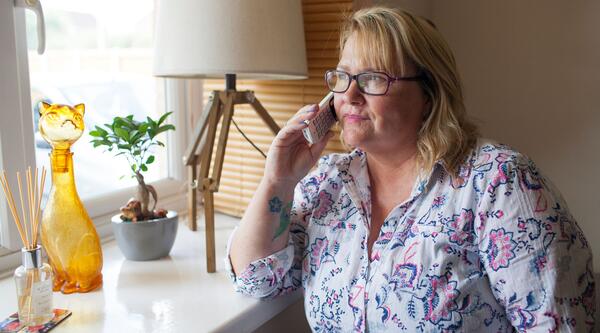Dementia Strategy - Essex
An example of a co-produced strategy from local authorities, with the experiences of people with dementia at its heart.
In 2017 there were thought to be almost 20,000 people living with dementia in Essex. This is expected to increase to over 25,000 people by 2027. Friends and family are often caring over 50 hours a week for a loved one with dementia.
The Purpose
The strategy was developed in partnership between Essex County Council, Southend on sea Borough Council, Thurrock District Council, and Clinical Commissioning Groups across Greater Essex as part of a new and comprehensive, all-age ambition for mental health and emotional well-being in Essex.
Preparation
Work towards the strategy began in 2015 with scoping what was needed. The organisation that was approved to lead this work took a co-production approach including employing independent consultants. Work then took place in different streams. For example, The Public Office produced a report following a range of engagement activity in Greater Essex. Healthwatch Essex led work on the 'Dementia Voices' report,
All the data was brought back, analysed and a group including people living with dementia and a carer for a person with dementia drew up and launched the strategy.
These engagement activities highlighted some challenging truths about existing systems. For example, systems were fragmented and bureaucratic, people with dementia were not understood in relation to their families or carers, support was not personalised and existing systems pushed people towards residential care because they couldn't find support to live well in the community.
What happened
The strategy was co-produced with service users of dementia services in Essex, both people with dementia and carers. This led to identifying 9 priorities (including better access to information and advice, timely diagnosis and support for carers) and plans to transform dementia care across the county.
Priorities are presented with issues, outcomes and success measures. The need for them is illustrated by statistical evidence and quotes from the lived experience of people with dementia and carers.
- For example, the quotes below relate to the priority about diagnosis and assessment.
- The outcome identified is "All people with dementia will receive appropriate and timely diagnosis and integrated support".
The Results
More people with dementia are being able to be active and included in ways that matter to them in the community.
Almost two years into the strategy, a lot of work has gone into building and driving Dementia-Friendly Communities that learn from the experience of people with dementia, and carers. This reflects the decision to focus initially on the first three priorities - information, advice and guidance, diagnosis and community living.
The voices of people with dementia continue to be strong influencers, including on the partnership board that oversees the strategy.
- This has a carer member and a member who is a person with dementia.
- Reasonable adjustments are made to enable the person with dementia to be meaningfully involved. For example time may be spent with him outside of the meetings at a time and place that work for him, to go over the board business with him in ways that work for him, so that he can input even if he does not always attend the meetings.
- The board is now developing an Essex pathway leading up to diagnosis of dementia and looking at how to develop the post-diagnosis pathway too.
Being able to learn about the experience of people with dementia in richer detail, has highlighted gaps and areas for improvement in data gathering. The council are now considering how to ensure people with dementia and their carers have even more of a say in shaping, and about, their experiences. For example:
- is there a risk that services set objectives with people that are easy to achieve rather than outcomes that will really make a difference to how well people are living with dementia?
- For example just because someone has had training on something doesn't mean that they are able to apply it in their daily living.
- the council has realised that in reaching out to do co-production it needs to have more variance in the sample of people it involves, so it is putting plans in place for using task and finish groups that recruit from a wider range of people than before.
- the quarterly contract reporting includes measuring by asking people with dementia and carers who use services about their experiences. This is flexible enough that where gaps are emerging in understanding their experiences, it is possible to ask services to put specific questions to people to help close those gaps.
Measuring improved experience of people with dementia in care homes has led to all the care homes taking part increasing their care ratings. This work has been done using the gold standard framework, a palliative care framework, and raising dementia awareness of the staff. This is led on by a quality innovation team using IVCS funding. The frameworks align to strategy priorities.
The baseline with dementia programme works in an integrated way, linking commissioning about dementia, to commissioning colleagues concerned with learning disability and older people. The programme sits under integrations and partnerships and links to locality and countywide delivery leads. This enables sharing of learning in an ongoing and joined up way.
- in the north of Essex work is looking at building neighbourhood teams - using living with dementia as one of the 'test drives' to see how people with dementia could get better service there.
- teams and commissioning colleagues are learning from each other
- how dementia care happens where they are
- how to develop extra care housing to be dementia-friendly and inclusive, rather than having segregated units for people with dementia. This has changed the specifications.
What changed for people with dementia
- commissioning and service provision is much more informed about what matters and makes a difference for people living with dementia in Essex, and is continuing to turn up the volume on people's experience as part of continuous improvement.
- successes, such as creating a bowling club, are being shared across countywide networks to learn from them and develop community intervention and practice.
Learning points
The council has learned they can’t just tick off three priorities, achieve them within a few months, and then move on to the next ones. Instead, the council has realised that all those other priority strands of work feed up into those first three priorities. So now a programme board looks to ensure that all the priorities are being addressed all the time.
The council is looking to build a database of people with dementia and carers who would like to get involved in commissioning - to be much bigger and more robust than a residents panel. To operate in different and solutions-focussed ways, co-producing, so avoiding the risk of being 'moaning shops' with no focus.
The strategy is improving the experience of people with dementia and carers, but to make even more difference needs cultural change.
- When a commissioner shadowed a dementia service they found that
- matrix management systems were not working - nobody wanted to be critical. There was reluctance to look at the problems it took to achieve good levels of performance.
- staff celebrated what they were achieving, but still thought of people as 'their' clients and in doing so, were not recognising when another agency would be better-placed to help. They missed opportunities to see how people with dementia could have an even better experience if they saw service users more as 'people we are all serving' and connected more with other agencies. This led to duplication of effort.
- A round table meeting with the commissioner overcame this by exploring how to work more collaboratively together.
- Sometimes the person with dementia is becoming confused as there are lots of services in the same place, linking to the same GP surgeries, all saying they can help but not working as a team. None of the services can do everything the person needs, but they continue to think of options that only they provide - rather than breaking out of traditional thinking and asking 'what else can we look at?' as a wider team. This may mean, for example, that people think of prescribing medication when a social or community activity option might be more effective.
- Services may still not be aware enough of one another - and this can contribute to delayed discharge from hospital.
Key contacts to find out more
Lou Mott, Integrated Commissioner Dementia, Integration and Partnerships, Essex County Council Email: [email protected]
Alzheimer's Society's team in Essex. Email: [email protected].




